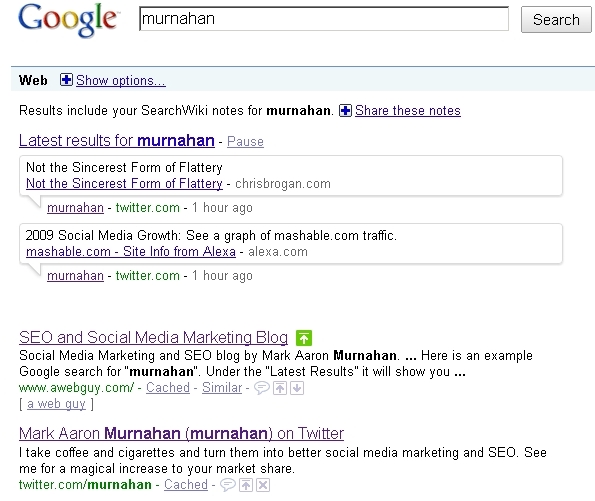Do you see your Twitter updates or recent blog posts in Google? Well, of course you should. I would be pretty surprised to write a blog post and not see it show up in Google … at least at some point. However, it is taken up a notch with the near-real-time “Latest Results” section in Google search results.
What do I mean? Here is an example Google search for “murnahan“. Under the “Latest Results” it will show you what I sent on Twitter just a moment ago, instead of only a link to my Twitter account.
I heard it stated in a recent talk at Integrated Marketing Summit in St. Louis, that Google and Bing are the largest users of social media. It is true that when you break it down, their algorithms base results on community popularity. When something has a lot of incoming links, the ranking improves. The success of a site’s Bing or Google ranking is largely based on people voting it up by linking to it.
Social media really is a basis for search engine rankings, even when it is not as immediate or as conversational as you find with Twitter, Facebook, YouTube, LinkedIn, and etcetera. It is still social media.
I have heard some people say they like this this, some said they do not, and others on the fence. In my opinion, it shows that Google is working very smart to keep up with the massive explosion of real-time social media, and doing a nice job of it. I think it may also help to remind people just how interconnected the many social media sites really are, and remind them to watch what they do with their social media presence.
Where do you stand? I would like to hear your thoughts on Google’s addition of Twitter and other social media feeds in search results. Please add your comment here on my blog.
